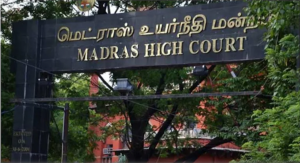 The Madras High Court in the case of M/S. GREENSTAR FERTILIZERS LIMITED vide W. P. (MD)No. 26254 of 2022 And W. M. P. (MD)Nos. 20437 and 20438 of 2022 dated 11.06.2024, has held that Penalties under Section 74 should consider whether the ITC was utilized to discharge tax liability. Mere wrongful availment without utilization does not justify severe penalties. Mere reflection of ITC in the electronic credit ledger without utilization does not attract heavy penalties under Section 74 of the CGST Act. The proper method for such cases is to impose penalties under Section 122 of the TNGST Act, 2017, which deals with penalties for procedural errors.
The Madras High Court in the case of M/S. GREENSTAR FERTILIZERS LIMITED vide W. P. (MD)No. 26254 of 2022 And W. M. P. (MD)Nos. 20437 and 20438 of 2022 dated 11.06.2024, has held that Penalties under Section 74 should consider whether the ITC was utilized to discharge tax liability. Mere wrongful availment without utilization does not justify severe penalties. Mere reflection of ITC in the electronic credit ledger without utilization does not attract heavy penalties under Section 74 of the CGST Act. The proper method for such cases is to impose penalties under Section 122 of the TNGST Act, 2017, which deals with penalties for procedural errors.
The decision reinforces the need for a nuanced approach in imposing penalties, distinguishing between mere procedural errors and actual misuse of tax credits. This judgment highlights the importance of fair and proportionate penalties within the framework of the CGST Act, ensuring that businesses are not unduly penalized for unutilized wrong credits.
Facts of the Case:- In this case, the petitioner challenged the order of appellate authority which upheld the decision of respondents. The original order confirmed penalties and interest on various instances of wrong availment of transitional input tax credit (ITC) by the petitioner. The petitioner argued that the penalties were unwarranted as they reversed the wrongly availed credits before any utilization.
Submissions by the Petitioner:- The Petitioner argued that they reversed the wrongly availed ITC before the show cause notice was issued. The imposition of penalties was contested on the grounds of procedural errors and no actual loss to revenue. Further, mere reflection of ITC in the electronic credit ledger does not constitute “availment” or “utilization” for penalties under Section 74 of the CGST Act, 2017.
Submissions by the Respondent:- The respondents contended that penalties are justified irrespective of whether the credit was utilized or not. They argued that the provisions under Section 74 of the CGST Act mandate penalties for wrong availment of credit due to fraud or misstatement.
Held:- The court referred to previous rulings, particularly highlighting that penalties under Section 74 should be imposed where there is both availment and utilization of wrongly availed credit.
Referred judgments like Aathi Hotel vs. Assistant Commissioner (ST) (FAC), Nagapattinam District, wherein it was established that penalties under Sections 73(1) and 74(1) of the CGST Act apply only when the wrongly availed ITC is utilized. Otherwise, penalties should be under Section 122 of the TNGST Act. Kumaran Filaments (P) Ltd. vs. Commissioner of Central GST and Central Excise, wherein Reinforced that penalties are unjustified if ITC is not utilized. In the case of Commercial Steel Engineering Corporation vs. State of Bihar, it was held that mere reflection of ITC in the electronic ledger without utilization does not constitute availment for penalty purposes.
The court found that mere wrong availment of credit, without utilization, does not justify penalties under Section 74. Penalties under Section 74 should consider whether the ITC was utilized to discharge tax liability. Mere wrongful availment without utilization does not justify severe penalties. The proper method for such cases is to impose penalties under Section 122 of the TNGST Act, 2017, which deals with penalties for procedural errors.
The court allowed the petition, setting aside the penalties imposed by the respondents. A token penalty of Rs. 10,000 was imposed on the petitioner due to the potential for wrong utilization of availed ITC, despite no actual misuse occurring.
To read the complete judgment 2024 Taxo.online 1131


